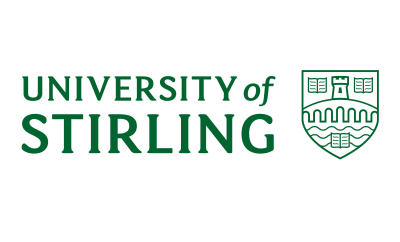
Doctor of Applied Social Research
University of Stirling

Key Information
Campus location
Stirling, United Kingdom
Languages
English
Study format
Distance Learning, On-Campus
Duration
36 - 96 months
Pace
Full time, Part time
Tuition fees
Request info
Application deadline
Request info
Earliest start date
Sep 2024
* For up to date fee information, please see website
Introduction
Overview
Our Doctor of Applied Social Research is designed to transform the way you think as a professional and ensure you can make a powerful impact in your field.
Top reasons to study with us
#1 86% overall student satisfaction for Applied Social Research - Postgraduate Taught Experience Survey (PTES) 2022
#2 Work while you study and put your new expertise into practice
#3 Study large components of the course online for maximum flexibility
Curriculum
If you’re an experienced professional who wants to advance your expertise and broaden your career opportunities, this course is an ideal match. From the outset, you’ll gain high-quality research skills that can be immediately applied in the workplace and refined through access to seminars and advanced training opportunities. You’ll also benefit from the guidance of our expert staff and your interaction with fellow professionals and executives from a range of social science backgrounds.
The course is highly flexible and attendance is kept to a minimum to ensure you can fit your studies around your career. You’ll also have the opportunity to fine-tune your Doctorate in Applied Social Research based on your profession – choosing one of the following pathways:
- social work
- dementia studies
- housing
- substance use
- criminal justice
- social research
- family therapy
Ultimately, you’ll acquire skills that bring you up-to-date with the latest ideas, findings and research methods in your field, all of which you can feed back into optimising the workplace and taking decisive actions that improve services and advance your career.
Course objectives
This course is designed to enhance the way you think as a professional and give you the research skills you need to make a genuine impact on your working environment. We’ll bring you up-to-date with the latest ideas, findings and methods in your field, challenging assumptions and changing how you think about the relationship between research, scholarship and expertise. You’ll be encouraged to look at new ideas about systems, how decisions are made and how to design the professional environment so that you can see, understand, evaluate, plan and take action with maximum speed and efficiency.
As well as equipping you with foundational insights into research processes through our core research training modules, you’ll also home in on a speciality area via a range of pathway options. These pathways ensure your qualification matches the specific demands of your professional role or your career ambitions.
Housing
This pathway includes a choice of specialist modules in Providing Housing Services; Sustainable Communities; Organisational Behaviour; Delivering Affordable Housing; Housing Governance; Healthy Housing.
Social Work
Our Social Work pathway includes a choice of specialist modules in Understanding Children and Young People's needs; Understanding Children and Young People's Needs; Improving Outcomes for Children and Young People; and several others.
Criminal Justice
Our Criminal Justice pathway includes a choice of specialist modules in Criminological Perspectives; Criminalisation, Social Control and Human Rights; Rehabilitation and Criminal Justice Work; Research Methods in Criminology and Socio-Legal Studies.
Dementia Studies
This pathway includes a choice of specialist modules in Evaluation and Assessment in Dementia Care and Researching Dementia.
Substance Use
Our Drug and Alcohol Studies pathway includes a choice of specialist modules in Understanding Addiction: Society, Policy and Practice and Understanding Addiction: Treatment and Recovery.
Applied Social Research
The Applied Social Research pathway includes a choice of specialist modules in Nature of Social Enquiry; Social Network Analysis; Policy Analysis and Evaluation Research; Advanced Quantitative Data Analysis; Theory and Method of Digital Social Research.
Family therapy
As the only doctorate of its kind in Scotland, the Doctorate of Applied Social Research (Family Therapy) is for family therapists and systemic practitioners who want to develop as a researcher, complementing existing clinical skills and knowledge.
Professional accreditations
We’re part of the Scottish Graduate School of Social Sciences and our research training is accredited as part of the ESRC Scottish Doctoral Training Centre.
Teaching
Teaching methods are adapted to suit the aims of each module, and include lectures, seminars, computer-based workshops and group work. There are many opportunities for discussion and feedback from peers and teaching staff. At the thesis stage, you’ll have two supervisors, with the Principal Supervisor having expertise in your chosen area of interest.
In addition, you’ll also have access to courses, seminars and development opportunities offered by Stirling Graduate Research School (SGRS) and the Scottish Graduate School of Social Sciences, including advanced training and summer school programmes.